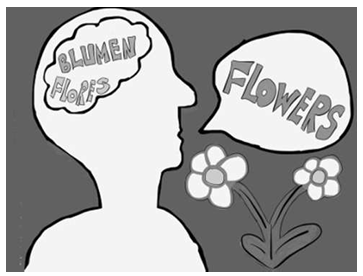Essay: On Being Monolingual
Published in the PSC CUNY Retirees Chapter Newsletters: June 2018
All my grandparents had firm roots in the United States soil. They lacked romantic dreams about the old country. Their speech was fully American via Brooklyn.
Yiddish was their secret code I never understood. My elders used the phrases as spice in their daily words. English was the main menu. Yiddish’s homey qualities were present. Mama Loshen sounded welcoming with its hybrid of German and Hebrew. German sounded harsh and militaristic, yet it was the language of Beethoven and Mozart.
My father’s father spoke English easily. The reason was simple. He came over from Russia when he was two. Through hard work, perseverance and multiple part-time jobs, he graduated from City College in 1906. He put himself through college by tutoring immigrants for twenty-five cents an hour, a good rate. City College tuition was free, and that made his entire college experience possible. He was a coach at Boy’s High School in Brooklyn, then an elite place of education.
His wife, my grandmother, came over from “the old country” with her parents. She loved playing Chopin waltzes from memory. Her father got a job repairing watches in a small store and “spoke a fine German.”
My other two grandparents were Brooklyn born and raised. My grandfather’s passion was singing music from Italian operas. She taught kindergarten where native speakers were prized for their clear diction.
In Spanish, I knew the difference between the informal tu and the formal usted. Tu meant casual contact between peers and usted was for elders as a sign of respect. When I asked when to use the different forms of address, I was told you use the informal, when you “are invited.” One Mexican used the informal to pray.” Because God is my friend,” he said. A woman from Spain favored the formal usted for her religious life. Most are struck by a linguistic choice they did not notice when in their church community. Mexicans spoke at a slower pace. Puerto Rican Spanish featured the drama of speed. When I spoke Spanish, I danced with my hands. Spanish from Spain had a different cadence. Newspapers and posters in Spanish were easier to follow to assess each word slowly.

Living near a Korean-owned deli, I learned from the owners: “hello, thank you, you’re welcome.” Native speakers say I have a good accent. I am fascinated by Swedish rhythm, like a sing-song aria. When I lived in that country I remembered when all the Swedes present spoke English to welcome me as the only American at a party. Sometimes, their English sounded quaint. “It is sunny today. Do you want to sit in the shadows?” Years ago in Sweden, the phrase for immigrants to a recent newcomer was, “the black haired one.” I never spoke Swedish so it was hard to judge the context. Was the term descriptive or racist? The hidden meaning was missing. Now this phrase is obsolete and outdated. Caribbean slang was always expressive. “Don’t get on my last nerve” was the response to someone who is annoying. What a wonderful description!
Through all these encounters I wondered how rich my world would be if I was more than an English only speaker.